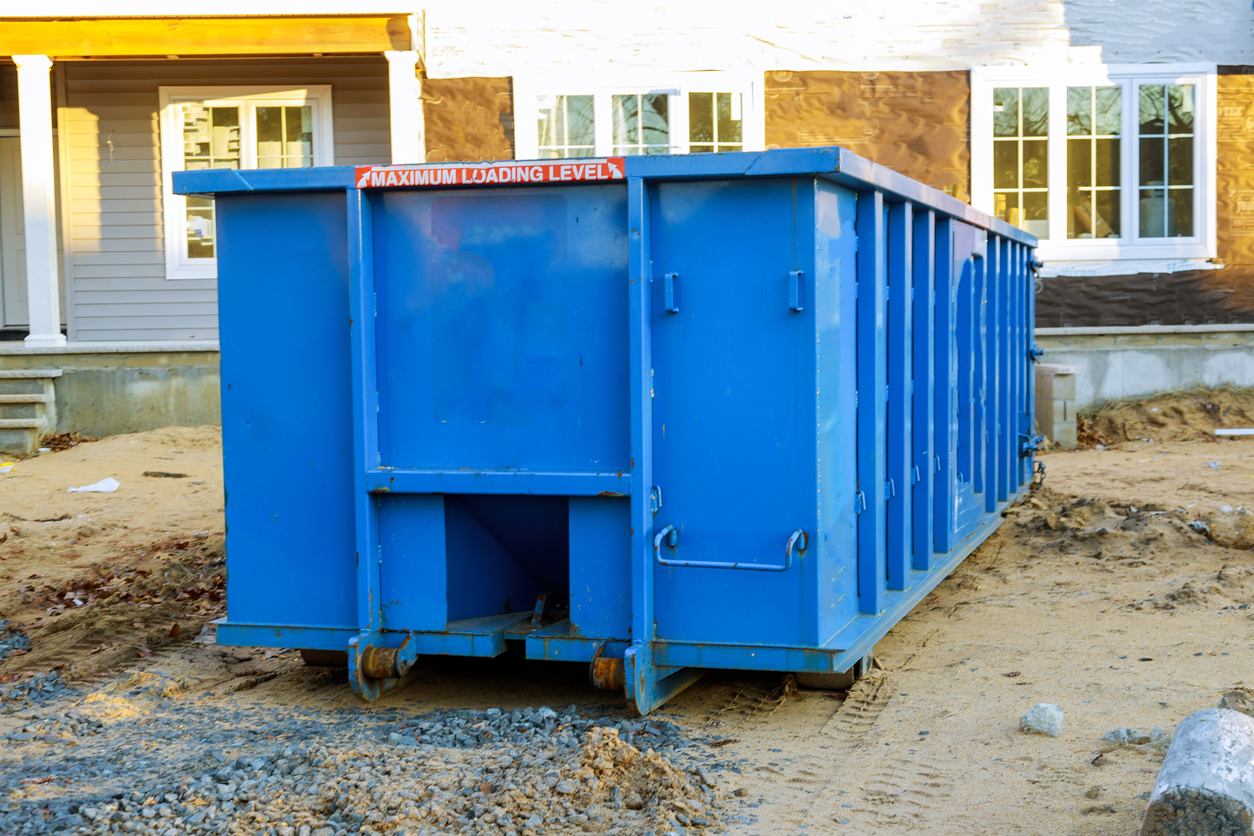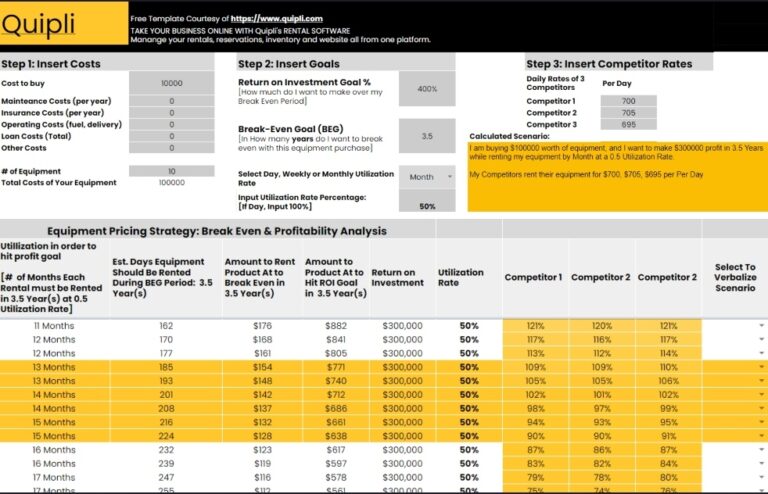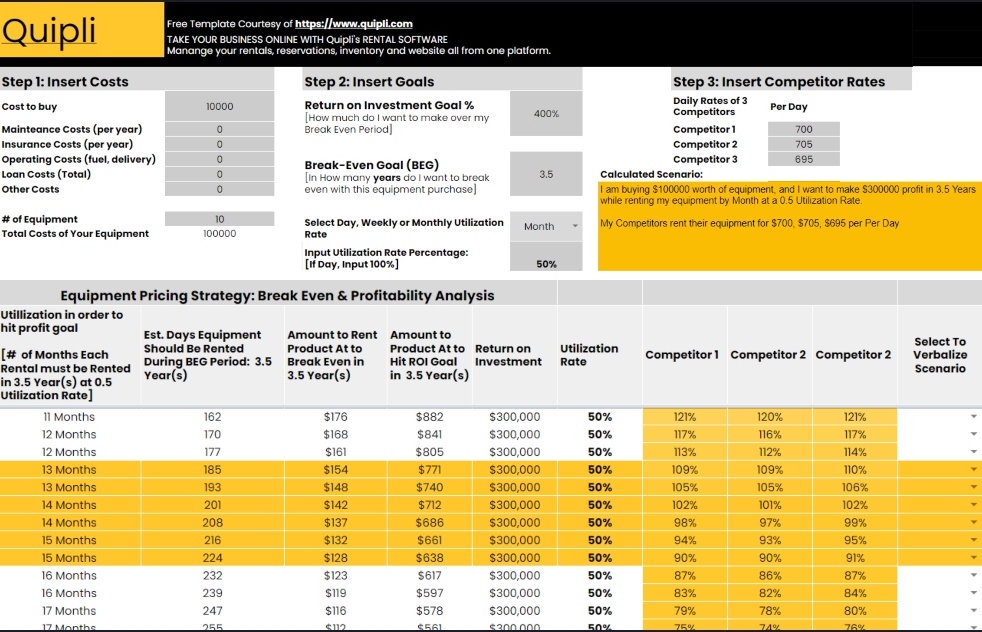With the recent rise in home improvement projects, associated industries have been growing. One of those industries is the dumpster rental business.
Both homeowners and contractors need a simple and easy way to handle construction waste during projects, and more often than not, they turn to dumper rental businesses for convenient and affordable waste disposal.
How Does a Dumpster Rental Business Work?
A dumpster rental business is like many other types of rental businesses, but it also differs in many ways. One of the most important things to consider when figuring out how to start a dumpster rental business is that the business also incorporates delivery, pickup, and waste disposal.
The most common type of dumpster rental is the roll-off dumpster. These make pick up and drop off much faster and easier but require a specialized truck to do so. The dumpster “rolls off” the back of the truck and is loaded back on with a winch.
The process is pretty simple: First, the dumpster rental company drops off the dumpster. Then, the customer fills it with construction or other waste. Finally, the dumpster rental company picks it up. It’s then up to the dumpster rental company to dispose of the waste properly and prepare the dumpster for the next rental.
What Is a Dumpster Rental Company’s Business Model?
Developing an effective business plan is an important step in how to open a dumpster rental store. You’ll have to have a very clear understanding of what your business model is going to be to put that plan together.
A dumpster rental company makes money from rentals and has to leverage that against the cost of dumpsters, trucks, and waste disposal. While this might cause you to wonder, “are dumpster rentals a profitable business?” they generally are and can quickly grow.
To get financing for initial costs, you’ll have to define your dumpster rental business model in your business plan. There are dumpster rental business plan PDF templates available to make this easier. You’ll also have to make sure to properly form your business so that you can get the necessary insurance.
What Are the Costs of Running a Dumpster Rental Business?
When preparing a dumpster rental business plan, it’s important to consider what the costs of getting started are going to be. Among the most significant are going to be the truck or trucks needed for your businesses. These can range widely in cost depending on if you go new or used.
A new roll-off dumpster truck is going to cost over $150,000, while you can find used ones in passable condition for as little as $60,000. This cost is going to be the single largest expense in how to start a roll-off dumpster business by far, and you’ll also have to consider ongoing maintenance costs as well.
Now, where are you going to keep your dumpsters? Are you renting a lot somewhere? Do you own land? Are you buying new land? This need is something else to take into consideration, as these dumpsters do take up quite a bit of space if you’re building up a considerable inventory.
Depending on what scale you’re planning on starting out at, you may also need to hire employees. Paying them will be a considerable ongoing cost that you can’t ignore when figuring out how to start a dumpster business.
You’ll also need to develop an understanding of the appropriate waste disposal rates at local landfills. They’ll probably have different categories for different types of waste, and that’s going to play into how much you charge your customers and what your margins are.
On top of all that, there are several administrative and housekeeping costs as well. You’ll need a budget for advertising and setting up a website, or none of your potential customers will be able to find out that your services are available.
How Much does Acquiring Dumpsters Cost?
Of course, you’re going to need roll-off dumpsters for your business. There are many different types and models of roll-off dumpsters available. Generally, you can find them in sizes of 15, 20, 30, and 40 cubic yards. These will range from 12 to 22 feet long.
You can find them ranging from as little as $1,000 to as much as $6,000 or even more for certain types of specialty dumpsters. You’re going to probably want at least 10 to have a reasonable business plan.
How much does a dumpster rental business make? Well, it all comes down to how many dumpsters they rent, so you always want to have enough inventory for your customers.
How Can My Dumpster Rental Business Reach Customers?
Once you have all of the dumpsters and your truck ready to go, there’s still work to be done. You have to ask how to grow a dumpster rental business if you’re going to get ahead. That’s going to mean making an effective strategy for finding customers.
Having clear signage on both your dumpsters and your trucks with contact information is one of the most efficient ways to do so. Anyone who sees your dumpsters in someone’s yard will know that your business is available for dumpster rentals if they should ever need one.
Providing an optimized website is also important so that anyone searching for dumpster rentals in your area can find you. Similarly, you can try local print ads or direct mail to contractors.
What Kinds of Waste do Dumpster Rental Companies Handle?
Most dumpster rental business ideas center around the construction and renovation industry. Renovations and demolitions are some of the most common activities that generate enough waste to necessitate a dumpster rental but not enough to hire a dump truck.
Construction waste can include a variety of materials. Wood, concrete, brick, stone, asphalt, shingles, and more. Most landfills will simply categorize this as “construction waste” and apply a simple per ton rate to it.
Dumpsters are sometimes also required for landscaping, in which case they’ll be filled with a variety of yard debris. This waste could include trees and other plants, sod, soil, and rocks. Unless it’s soil that’s being removed due to contamination, there aren’t any special considerations needed here.
The Importance of Reservation and Inventory Management
Your dumpster rental business start-up relies on providing your customers with easy access to your inventory. They should be able to know what’s available and make reliable reservations without any hassle.
Inventory is essential to how to run a dumpster rental business. When a customer makes a reservation, you need to know that it’s been effectively registered in your system so that you don’t end up with double bookings that cost you return customers.
Ideally, you should have rental equipment checkout software that handles this part of your business. Inventory management is too important to leave up to chance, so you should be using the best solution available today.
Comprehensive Inventory Management With Quipli
Quipli makes inventory management easy with all of the tools that your business needs to succeed. The integrated system handles reservations and inventory seamlessly, providing easy bookings through your professional and straightforward website.
If you’re starting a dumpster rental business and interested to see what our construction equipment rental software features we offer contact our team at Quipli and Book a Demo Today!



